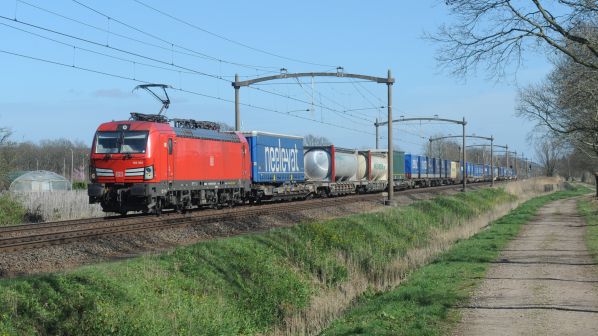A bilateral working group will be established with the aim of increasing efficiency and optimising cross-border operations to improve the competitiveness of rail freight. Measures to be examined will include the development of Automatic Train Operation (ATO) and upgrading infrastructure for the operation of 740m-long trains.
The agreement was welcomed by Dutch rail freight lobby group Rail Good, which notes that 85% of rail freight traffic in the Netherlands crosses the German border.
Rail Good stresses that the working group must achieve concrete results and is calling for improvements in eight key areas:
- full interoperability of rail infrastructure and the financing of investments in rolling stock
- speeding up the measures enabling the introduction of 740m-long freight trains with the aim of completing these enhancements by the end of 2023
- emergency planning and contingency management for major operational disruptions
- digital interfaces between rail freight operators, customers, infrastructure managers, terminals, private sidings and infrastructure maintenance companies with information about train status and estimated arrival times
- harmonised systems for remote monitoring of train status such as detecting hot axleboxes and excess axle weight
- all possible measures to stimulate interoperability and harmonisation;
- measures to improve and simplify access for new entrants to the rail freight market by providing easy access to terminals, sidings and industrial areas, facilities and solutions for last/first mile movements, cross-border coordination of train routing options and integration of freight operations into urban logistics, and
- creation of a joint expert group for financing investments in rolling stock such as ETCS onboard units.
Rail Good is also urging the Dutch government to follow the German approach to rolling out ERTMS, both in terms of timing and ETCS versions to ensure full interoperability of cross-border freight.

